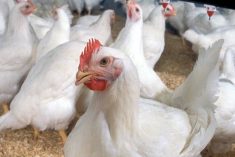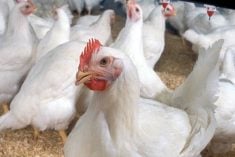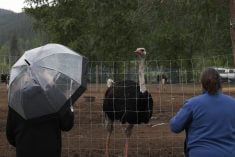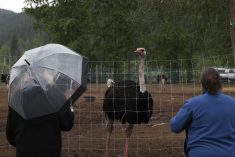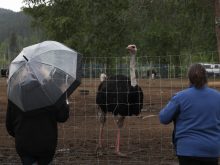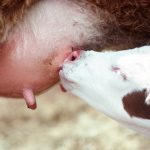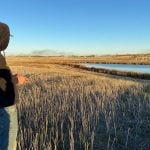Farmers planning to hunt geese and ducks this fall should take measures to reduce the risk of transmitting bird flu to flocks and herds say experts from North Dakota State University (NDSU).
“The best defense against [highly pathogenic avian influenza] is having a biosecurity plan in place,” said Mary Keena, NDSU Extension livestock environmental management specialist. “It is your job as an animal owner to create a line of separation between your clean animals and the potential unclean issues that wildlife or visitors may bring.”
The risk of avian flu transmission increases in hunting season due to increased interaction with wild birds, NDSU staff said in an article posted this month. Waterfowl, gulls, terns and shorebirds are the primary carriers of avian influenza A —the strain responsible for deadly outbreaks in poultry flocks and, more recently, milder outbreaks in U.S. dairy herds.
Read Also

Carney visits Asia to forge new alliances and reduce U.S. dependence
Canada’s Prime Minister Mark Carney embarks on his first official visit to Asia on Friday in an attempt to deepen trade and security ties at a time when the North American country is struggling to lessen its overwhelming dependence on the U.S. and redefine its foreign policy in pursuit of new markets.
“Infected birds shed bird flu viruses in their saliva, mucous and feces,” said Miranda Meehan, NDSU Extension livestock environmental stewardship specialist. “If you hunt game or wild birds and own domestic poultry or livestock, do not wear hunting clothes or footwear while you are interacting with your poultry or livestock.”
NSDU extension staff recommended the following biosecurity measures:
- Avoid hauling the disease home by changing clothings and footwear before crossing the clean/dirty line to care for animals.
- Avoid driving through areas where waterfowl and other wildlife feces may be. If it cannot be avoided, clean shoes, vehicles and equipment thoroughly.
- Field dress birds where possible.
- Keep dogs away from poultry or livestock if they’ve interacted with waterfowl. Dogs aren’t a high risk to contract the virus, but may transmit bird flu to domestic flocks.
- If visitors are interacting with flocks or herds, find out where they’ve been. Require them to wash hands and wear clean or disinfected clothing and shoes.
- Clean up litter and spilled food around animal housing to reduce attractiveness for wild birds.
- Consider bringing in any free-range guinea fowl and waterfowl.
—Updated Sept. 19. Removes reference to documented cases of dogs spreading bird flu to poultry.




